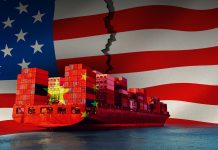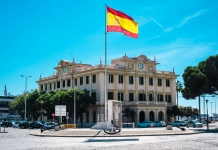In 2003, during the SARS epidemic, China accounted for only 4% of global output, but with increased globalisation, dependence on China has also increased, bringing that figure up to 16% today. Post COVID-19, will this reliance wane, and if so, where to look to now?
The pandemic has uncovered many things, and the over-reliance of international companies and governments on China is at the forefront. From cars to medicines, global corporations with current or intended supply chain operations in the Asia Pacific are rethinking their routes, and with its reliable infrastructure, competitive wages and skilled workforce, the world is watching Morocco, looking to include the country in its restructuring.
China has long since played a dominant role in global manufacturing, but rising labour costs, the US-China trade war and, most recently COVID-19, has led to a reassessment of the increasingly stretched global supply chains. Reeling from US-China trade pressures, supply channel tensions were already sky high at the start of this crisis.
With a demand to bring supply chains and manufacturing closer to final destination markets, Morocco is emerging as a key pharmaceutical manufacturing centre with easy access to Western Europe. Currently, the national market is the second largest in Africa with a turnover of MAD 14.4bn. Post COVID-19, relocation and multiplying suppliers in different countries will decrease dependency and ensure that national needs are met.
Morocco boasts a very rigid and strict regulatory framework in line with European best practices, and consequently the Moroccan pharmaceutical sector is considered one of the best in the MENA region. However, to advance Morocco’s attractiveness on the global stage even further, labour laws and legal frameworks that ensure continual production together with strict safety procedures must be granted, alongside further funding in R&D.
The vulnerabilities of long supply chains have been highlighted by the pandemic and global companies that used to produce in China or import from the Asian giant are diversifying their suppliers. As of April 2020, the export value from China had fallen to a shocking low of $202bn – the largest drop in recent times. Though the pandemic has brought this to the fore, rising production costs, together with increased rates applied as part of the US-China trade war, have seen businesses increasingly move their factories and plants out of China towards more competitive markets.
Morocco stands to benefit as European firms, hurt by COVID-19, seek alternative production bases and look to shorten their supply chains. This disruption has amplified existing supply chain digitalization and diversification issues and emerging markets can reap the benefits. The COVID-19 lockdown measures imposed by governments around the world to combat the virus have caused severe disruption to supply chains as companies were forced to shut in March. Looking to the future, introducing incentives for innovative start-ups will help shape the future and encourage the growth of a true pharmaceutical industry ecosystem in Morocco.
The pharmaceutical industry has long touted the strength of its global supply chain, but a double whammy of COVID-19 and geopolitical standoffs have cast that network into doubt. As the pharma industry becomes increasingly globalised and demand grows for new product types with shorter life cycles such as biological and genomic medicine, supply chains need to become smarter.
Morocco, an emerging player in the global pharmaceutical market, with a strategic geographic location and EU regional trade agreements, serves as a gateway between Europe and Africa for companies looking to strengthen local supply chains and minimize future disruptions. By bringing supply chains closer to home, EU companies can gain more autonomy. Morocco can promote its stable political system, reliable infrastructure and ample supply of educated labour to European manufacturers.
The EU promised to remove Morocco from the tax haven grey list after commending the reforms undertaken by the country to improve financial transparency and fight tax evasion. This promising step was taken after Morocco showed willingness to comply with tax standards alongside the EU, and this will enable the relocation of important activities related to pharmaceutical drug production.
Morocco, which is widely regarded as an oasis of political stability in its turbulent southern flank and a reliable trade partner of the EU, is the logical choice for European companies looking into ways to shorten their supply chains. There is no doubt that the pandemic has been a major stress for every country, but with great government incentives, resilience and inspired post COVID-19 strategies, Morocco is gaining strength and admiration entering 2021.









































